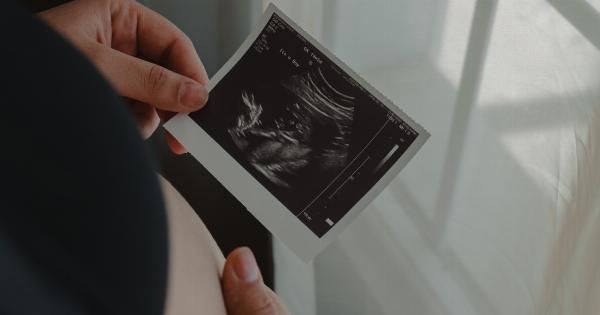Alcohol consumption has become a social norm in today’s society. However, for pregnant women, it can lead to detrimental health effects on both the mother and the fetus.
The consumption of alcohol during pregnancy is known to cause a range of birth defects, developmental disorders, and disabilities which are collectively known as fetal alcohol spectrum disorders (FASDs). In this article, we will discuss the reasons why alcohol is harmful to pregnant women.
Alcohol and Pregnancy
When a pregnant woman consumes alcohol, it enters the bloodstream and is carried to the fetus through the placenta. Unlike adults, the fetus lacks the ability to break down alcohol as it has underdeveloped liver functions.
This leads to high concentrations of alcohol in the fetus, which can cause significant harm.
Fetal Alcohol Syndrome
Fetal alcohol syndrome (FAS) is a severe condition that results from alcohol exposure during pregnancy. Children with FAS have facial abnormalities, growth and developmental issues, and cognitive disabilities.
The physical abnormalities include a small head circumference and a smooth philtrum, which is the area between the nose and lips.
Fetal Alcohol Effects
Fetal alcohol effects (FAE) are less severe when compared to FAS. Children with FAE do not exhibit physical abnormalities but display developmental and cognitive issues.
The effects can be lifelong and affect the child’s behavior, memory, social skills, and ability to learn.
Alcohol-Related Neurodevelopmental Disorder
Alcohol-related neurodevelopmental disorder (ARND) is a condition that arises from alcohol consumption by the pregnant mother.
Children with ARND display intellectual disabilities, behavior, and learning problems, which can affect their social and academic lives.
Alcohol-Related Birth Defects
Alcohol-related birth defects (ARBDs) encompass a variety of physical conditions that affect the child’s heart, kidneys, bones, and hearing. There is no cure for ARBDs, and children require extensive medical care throughout their lives.
Dose-Response Relationship
The extent of alcohol exposure during pregnancy can affect the degree and severity of the FASDs.
Mothers who consume alcohol in large quantities or during early pregnancy are likely to have children with more severe conditions than those who limit their alcohol intake or consume it later in pregnancy.
No Safe Level of Alcohol
There is no safe level of alcohol consumption during pregnancy. Any amount of alcohol can harm the developing fetus, and it is best to avoid alcohol altogether.
Some mothers may believe that they can mitigate the harm by limiting the amount of alcohol they consume or drinking only on special occasions. However, studies show that even minimal alcohol exposure can cause significant harm.
Alcohol Affects the Developing Brain
Alcohol interferes with the development of the fetal brain, leading to a range of cognitive and behavioral issues. The developing brain is highly sensitive to alcohol, and even small amounts can lead to permanent damage.
Research shows that children with FASDs have significantly smaller brain volumes than those without FASDs.
Legal and Social Implications
Drinking during pregnancy has legal and social implications. In some countries, women who consume alcohol during pregnancy can face legal action if the child is born with FASDs.
Socially, mothers of children with FASDs may face stigma and discrimination, leading to significant emotional distress and hardships.
Conclusion
In conclusion, alcohol consumption during pregnancy can lead to detrimental health effects on both the mother and the fetus.
Pregnant women should avoid alcohol consumption to prevent FASDs, including fetal alcohol syndrome, fetal alcohol effects, alcohol-related neurodevelopmental disorder, and alcohol-related birth defects. The danger of alcohol is that there is no safe level of consumption, and even minimal exposure can lead to significant harm. By avoiding alcohol during pregnancy, mothers can ensure the best outcomes for themselves and their children.






























